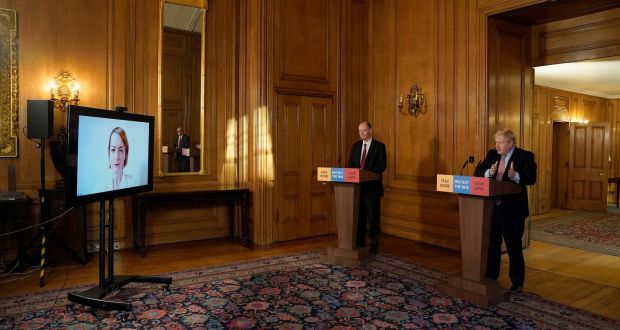Journalists are under enormous pressure right now. There is a huge public appetite for information and debate and the means to feed it are tougher than ever. The coronavirus story is unprecedented. It is still early days but what can we learn about the challenge to journalism it presents?
Overall, I think journalists are doing heroic work from international to local levels. Clearly, there have been specific mistakes and overall questions about the quality of coverage. But first let’s try to understand the context because it is novel and brutal.
Back in 2011 in the wake of the financial crisis and after a summer of peculiar English riots, I became obsessed with the ideas of uncertainty and complexity as it relates to media and politics. I’d just written a book about the WikiLeaks revelations of 2010 which seemed to suggest that our world and the way we report it had to change:
“WikiLeaks, like the Arab Spring, like the English riots – demonstrates that we are in an Age of Uncertainty – not just for journalism but for the environment we operate in: our politics, economics, personal lives. It’s all much more unstable, less predictable and more fluid in terms of the facts of life and the ideas that we use to make sense of it.”
I saw this as an opportunity as well as a threat:
“So what a good time this is then to be a journalist – what a good time for a journalism that can at least start to help people make sense of this rich but challenging information world.”
But the uncertainty was combined with a crisis in globalisation and liberalism – you might say capitalism, too – combined with new scientific and other forces that made the world harder to understand, let alone control:
“It is also the Age of complexity. New media technologies are not conquering previous platforms they are adding to them. Convergence is a joke. Our lives are multi-gadget, multi-channel, multi-directional. Our experience as citizens of reality and the information that we need to make sense of it is more complicated, multi-layered and plural in its flows. Most people spend most of the time feeling mostly confused. That can breed scepticism and alienation when networked communications should be building connectivity and engagement.”
Now in 2020, things just got a lot more complex and uncertain.
All this when the news media is going through an economic crisis, a business model and production revolution and facing greater competition than ever. Add in the structural changes in audience behaviour, the new information ecology of the tech platforms and the growth of mis and disinformation online. Now throw into that broiling mixture a story like coronavirus. It is historically exceptional.
Even with 9/11, the Iraq War or the financial crisis there was not this relentless focus on one comprehensive agenda-dominating story. It is highly unusual as a subject. It is massive, complex and uncertain. It keeps changing and there are loads we don’t know or can’t predict. That goes against the professional expectations of what journalists want to do. It is also contrary to what the public expects from the news media: ‘tell us the truth, give us the facts, hold power to account!’

At a granular level there is the change in the editorial process. The physical problem of working from home, shortages of staff, the pace and scale of the story. Rugby reporters find themselves turned into health correspondents. It means that (almost) all journalists are reporting on an issue for which they are not specialists. On top of that it is harder to edit and be edited and harder for journalists to benefit from newsroom support.
This is not to excuse mistakes or bias. But it is to say that we have never been more aware of the limitations of journalism. It has always been an imperfect, temporally-constrained craft. The flaws are more vividly exposed now than ever before. There is much more scrutiny on social media. We, the public, all care deeply about this and we are scared and angry. The emotion we feel about this disease and the way that politicians are dealing with it is channeled through the media. Much of this is useful feedback and helpful correctives from experts but also amateurs or ‘real people’ sharing their experience as well as views. A lot of it is just random, reactive emotion. Some of it pseudo expert journalism, most famously the tech bros on Medium with their charts.
The power of the news media, even old-fashioned TV news, is as great as ever. The demand and the production to meet is, as this Chartbeat data shows, enormous:
 I would argue that we are getting some incredibly good journalism. Look at the brilliant data journalism of the FT’s coronavirus tracking feature for example. One can only admire the reporters on the ground putting their health at risk to cover this story. The responsibility is huge, too. There will be time for proper analysis and assessment of the role of the news media in this crisis at a later stage. But it is also vital that we try to understand and support journalists now.
I would argue that we are getting some incredibly good journalism. Look at the brilliant data journalism of the FT’s coronavirus tracking feature for example. One can only admire the reporters on the ground putting their health at risk to cover this story. The responsibility is huge, too. There will be time for proper analysis and assessment of the role of the news media in this crisis at a later stage. But it is also vital that we try to understand and support journalists now.
===
This article by Professor Charlie Beckett, director of Polis, the LSE’s international journalism think-tank
[Here’s a good guide from First Draft on how news organisations can help their journalists cope with the information struggle, but also the challenges of working remotely and under pressure]
[Here’s a good article from RISJ’s Rasmus Nielsen on the impact this crisis might have on the news media as a business]
You can read the 2011 article on complexity and uncertainty here




